Gum Disease Treatment – Denton, TX
Protecting Your Smile from All Angles

A fact that surprises many people is that the most common dental problem in the U.S. and around the world isn’t cavities but gum disease. These bacterial infections develop along the gum line due to a lack of oral hygiene, leading to inflammation, tenderness, and even tooth loss if left untreated. At Prime Dentistry, we can prevent and treat gum disease in-house. Call us if you suspect you may be suffering from inflamed and tender gum tissues.
Why Choose Prime Dentistry for Gum Disease Treatment?
- Laser Dentistry for a More Comfortable Approach
- Calming & Relaxing Environment for Patients
- Dentist with 20+ Years of Experience in the Field
What is Gum Disease?

According to a recent CDC report, 47.2% of adults over 30 and 70.1% of adults over 65 have some form of gum disease. These infections result from bacteria infecting the gum tissue and bone structure supporting the teeth. Gum disease starts as gingivitis, which is inflammation of the gums that can usually be reversed with improved oral hygiene. However, if the infection advances to the stage of periodontitis, it causes irreversible damage such as tooth loss, gum recession, and bone erosion and must be managed through regular dental treatments. You may be at greater risk of gum disease if you use tobacco, take medications that lead to dry mouth, are pregnant, or have certain genetic factors or medical conditions that compromise the immune system like diabetes.
Symptoms of Gum Disease
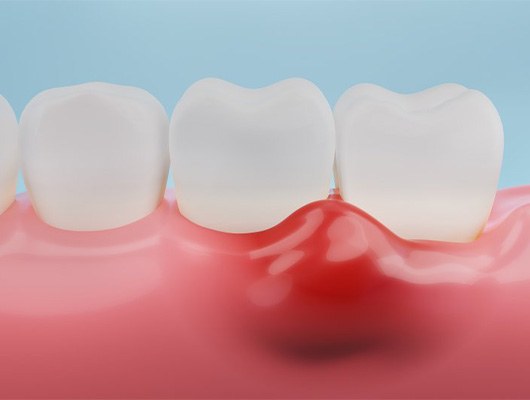
Gingivitis, the first stage of gum disease, may show itself through symptoms like:
- Bad breath
- Swollen, red gums
- Bleeding after brushing or flossing
- Tenderness
- Dark red gums
- Gum recession
Periodontitis, the advanced stage of gum disease, can involve symptoms like:
- Painful chewing
- Permanent teeth coming loose
- Dental sensitivity
- A change in bite alignment
- A change in the way restorations like dentures fit
- Tooth loss
How Do We Treat Gum Disease?

The first step to treating gum disease is having Dr. Ahir examine your mouth so he can determine the severity of your problem. Based on his findings, he may recommend one of the following treatments.
Scaling & Root Planing
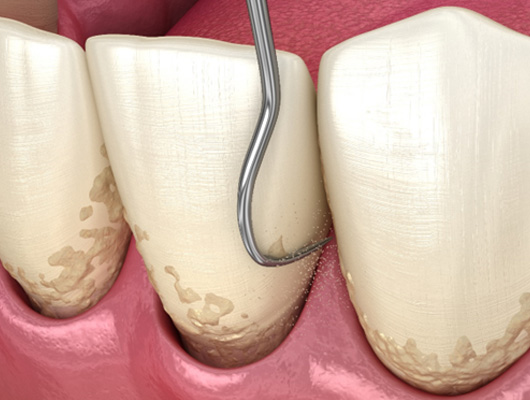
A regular dental cleaning isn’t always enough if your gum disease has already advanced to a certain point. In many cases, you may require a deep cleaning. This process actually consists of two steps: scaling and root planing. When combined, they not only allow us to get rid of harmful plaque and tartar, but they can also make future bacteria buildup less likely. Read on for a more in-depth look at scaling and root planing.
Read MoreDo I Need Scaling & Root Planing?

While you’ll need a dentist to help you determine whether scaling and root planing are necessary in your case, there are several symptoms that you can keep an eye out for. You should call us if:
- Your gums are unusually red or swollen, or they have a tendency to bleed easily.
- You have bad breath that won’t go away.
- Your gums have receded and exposed the roots of your teeth.
- Plaque has built up around your gumline to the point of being visible.
Once we take a look at your gums, we can figure out whether scaling and root planing are warranted in your case.
The Process of Scaling & Root Planing
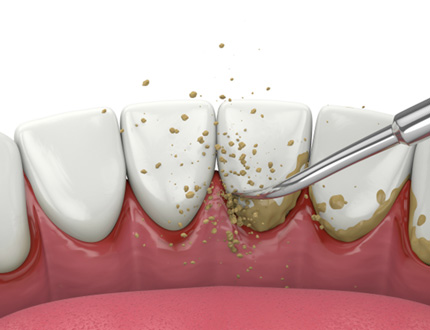
Scaling and root planing may require multiple appointments depending on the circumstances. Here’s what you can expect during the two phases.
- Scaling: This treatment involves locating plaque and tartar buildup so that it can be removed. This is similar to what happens during a traditional dental cleaning, but it specifically focuses on harmful substances that have accumulated around and beneath your gums. Our team will clean all the way down to the bottom of any gum pockets that have appeared due to gum disease.
- Root Planing: After scaling is done, we’ll move on to root planing. This is where we smooth out the roots of your teeth with the help of a special dental instrument. The importance of this step is twofold; it creates a smoother surface that harmful bacteria can’t cling to as easily, and it helps the gums reattach themselves to the teeth.
Rest assured that our team will be mindful of your comfort while carrying out the scaling and root planing process. Before we begin, we’ll apply a local anesthetic to your mouth in order to keep it numb while the procedure is being performed.
Aftercare Tips for Scaling & Root Planing

Your mouth will likely still be numb once the treatment is complete. As such, to minimize the chances of biting your tongue or the inside of your mouth by accident, you should refrain from eating for at least a couple of hours. On top of that, you should plan on only eating soft foods for the first 48 hours of your recovery at the very least.
Some discomfort may occur, but rinsing with salt water can help keep it under control. Additionally, while your mouth is still healing, you will need to be very careful when you’re brushing or flossing your teeth.
Antibiotic Treatment
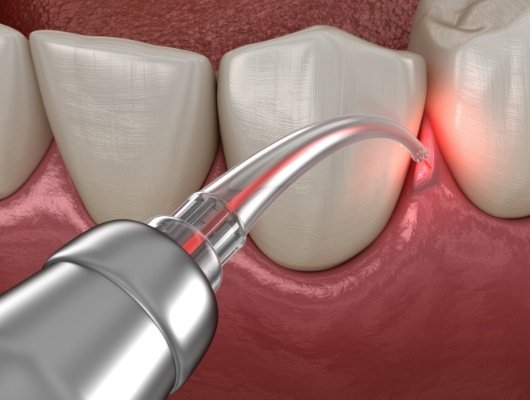
After the gums have been thoroughly cleaned, our team may apply a topical antibiotic called Arestin. Arestin is made up of thousands of tiny microspheres, each one filled with a powerful antimicrobial agent. When placed on the gums, the microspheres slowly dissolve over a few days, enabling the medicine to seep deep below the gumline and kill even the most well-hidden bacteria.
Pocket Irrigation
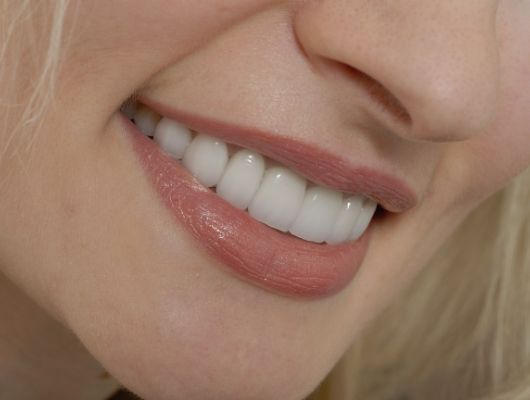
The tiny spaces located between the teeth and gums are called pockets, and they often end up as breeding grounds for gum disease-causing bacteria. For patients dealing with these infections, a pocket irrigation treatment serves to clean out these problem areas while also reducing their size, lowering a patient’s chances for reinfection in the future. This procedure can also aid in the healing of damaged gum tissue, helping it firmly reattach to the teeth.
Gum Disease FAQs
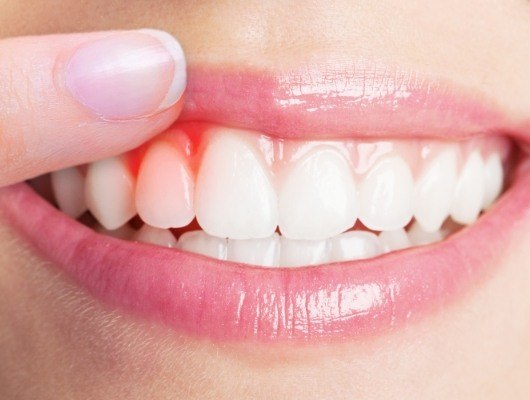
Gum disease, also known as periodontal disease, is much more common than you might think. In fact, the CDC has found that about half of all adults in the United States will suffer from periodontal disease at some point in their lives. It’s also the leading cause of tooth loss among Americans. To help you understand this condition a little better, you can read this list of gum disease FAQs.
HOW DO I KNOW IF I HAVE GUM DISEASE?
There are two stages of gum disease: gingivitis and periodontitis. The early stage, gingivitis, presents itself in the form of mildly bleeding gums, especially when you brush or floss, or tender, sore, or red gums.
In comparison, periodontitis, the more advanced stage, is significantly more severe. Pockets will start to form between your teeth and your gums, and pus may occasionally leak out. Other symptoms include frequent mouth sores, persistent bad breath or a foul taste in your mouth, and loose teeth. If you wait too long to seek treatment, you could lose your teeth altogether. That’s why, if you notice any of these symptoms, it’s best to contact us right away!
CAN GUM DISEASE CAUSE A HEART ATTACK?
Multiple studies have shown that people with gum disease are much more likely to suffer from heart attacks and other cardiovascular problems. While it’s not exactly clear why, since the two conditions share many of the same risk factors, many scientists believe that bacteria present in your mouth can set off a chain reaction of inflammation throughout your body, including your heart. Similarly, infections in the gums have also been linked to lung disease, liver cancer, and Alzheimer’s disease.
WHAT CAUSES GUM DISEASE?
In many cases, your lifestyle choices can greatly affect your oral health. Poor dental hygiene is a large contributor to periodontal disease, and neglecting the practice of brushing and flossing can cause plaque and tartar to accumulate along your gumline, both of which are full of harmful bacteria that result in infections. Smoking also puts you at greater risk.
With that being said, some uncontrollable factors also contribute to gum disease. For example, diabetes and genetics may play a role in whether your gums become infected.
HOW CAN I PREVENT GUM DISEASE?
As with the vast majority of dental problems, an ounce of prevention is worth a pound of cure. Keeping up with your oral hygiene is crucial in maintaining healthy gums. It’s also important to attend regular checkups and cleanings so that we can both remove plaque and tartar from your gumline and detect any warning signs of periodontal disease early on. Additionally, it helps to avoid smoking and to eat a diet high in fresh produce and low in processed sugars. These steps can help your gums stay healthy for like!





New Patient 1st Visit
Second Opinions

